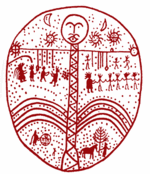Similar topics
Alejandro Jodorowsky interview:
Page 1 of 1
 Alejandro Jodorowsky interview:
Alejandro Jodorowsky interview:
<3 Jodorowsky.
See Arthur Mag for the complete interview:
See Arthur Mag for the complete interview:
JODOROWSKY: “I am old. I have so many things to do, so every day I get quicker, in order to do them! I don’t want to die without doing everything I wanted to do.”
In the Heart of the Universe
Jay Babcock talks with visionary comics author Alexandro Jodorowsky
Originally published in LAWeekly on January 01, 2004
In 1970, Alexandro Jodorowsky was launched into the counterculture consciousness via an utterly outre film called El Topo, which screened for seven straight months at a theater in New York City. Violent, mystical and more outrageous than Bunuel or Fellini’s surrealist dreamaramas, El Topo was the first midnight movie, a Western that divided critics even as it gained a rabid cult following of turned-on heads including John Lennon, Yoko Ono and Dennis Hopper. Without the benefit of advertising, the film showed seven nights a week to packed audiences. “Within two months,” said the theater’s visionary manager, Ben Barenholtz, who booked the film, “the limos lined up every night. It became a must-see item.”
Allen Klein, infamous manager of the Beatles and Rolling Stones, signed Jodorowsky to a film deal. An El Topo book was published by Lenny Bruce/Miles Davis/Jimi Hendrix/Last Poets producer Alan Douglas—its first half was the film’s nominal screenplay; the second half was a lengthy, startling interview with the auteur.
Born in 1929 and raised in a Chilean seaside town by Jewish-Russian immigrants, Jodorowsky had early ambitions as a poet. Dropping out of university, he formed a puppet company that toured Chile. He left for France in 1953 to find the Surrealists. With Artaud’s The Theater and Its Double as his bible, Jodorowsky worked in film, theater and with mime Marcel Marceau—for whom Jodorowsky wrote various ingenious scenarios. He spent the ’60s bouncing back and forth between France and Mexico — in France, he co-founded the post-Surrealist Panic Movement with Spanish playwright Fernando Arrabal, and in Mexico he drew a weekly comic strip, wrote books, staged plays and finally directed his first real feature-length film, a Dali-esque version of Arrabal’s play Fando y Lis. The Fando y Lis was scandalous and barely screened, but it allowed Jodorowsky to raise the money to make El Topo, the film that would bring him into the English-language world.
By summer 1972, anticipation for Jodorowsky’s next film was high enough for Rolling Stone to send a correspondent to Mexico for a visit to the set of his new film, The Holy Mountain. The resulting article, which was second-billed on the magazine’s cover to a piece on Van Morrison, described scenes, props and conversations that bordered between sensational and plain mad. Participants in the film seemed to be in awe of what they were doing: One P.A. said, “You know, I think this is the most important thing going on in the world today. At the very least, it’s the most far-out.” The finished film may be just that — if you can find it. At some point around the film’s release, Jodorowsky and Klein had a serious falling out that continues to this day, which means The Holy Mountain has never received a legitimate release on videotape or DVD (bootlegs are, of course, available).

ankh_f_n_khonsu- Number of posts : 545
Registration date : 2008-09-15
Page 1 of 1
Permissions in this forum:
You cannot reply to topics in this forum
